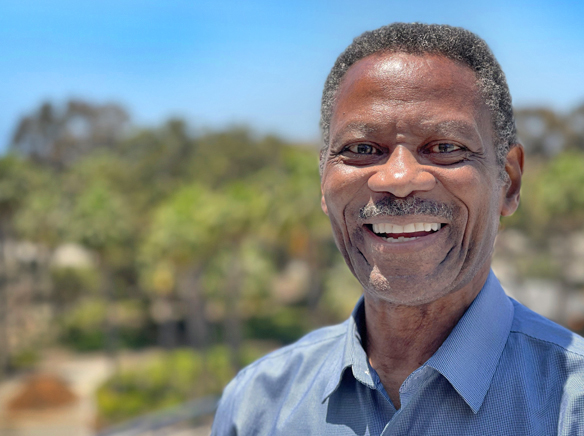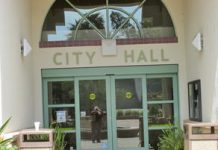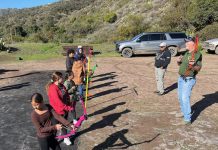
On Catalina, faith outreach required a non-traditional approach during the pandemic
It’s been one year since Jehovah’s Witnesses adjusted their hallmark methods of sharing comfort and hope from the scriptures due to the pandemic.
For many, the change from ringing doorbells and knocking on doors to making phone calls and writing letters expanded and invigorated their ministry.
Orlando Smith is among a small group of Jehovah’s Witnesses on Catalina Island who stood by carts displaying Bible-based literature or shared a good word from the scriptures with neighbors at their homes.
During the pandemic, they have so far reached about half of the island’s some 4,000 residents via mail or phone with a comforting Bible message. “It has been a new way of preaching for us,” Smith said. “We’re enjoying it.”
In March 2020, Witnesses in the United States suspended their door-to-door and face-to- face forms of public ministry and moved congregation meetings to videoconferencing.
“It has been a very deliberate decision based on our respect for life and love of neighbor,” said Robert Hendriks, U.S. spokesman for Jehovah’s Witnesses. “But we are still Witnesses, so we must testify about our faith. It was inevitable that we would find a way to continue our work.”
Many have checked in on neighbors as well as distant friends and family—sometimes sharing links to Bible-based articles from the organization’s official website, jw.org, on timely topics, such as isolation, depression, and beating pandemic fatigue.
If anything, the pandemic has heightened Witnesses’ concern for others, said Hendriks. “We are finding that people are perplexed, stressed, and feeling isolated. Our work has helped many regain a sense of footing—even normalcy—at a very unsettled time.”
Witnesses’ virtual meeting attendance is up, but the most significant gains don’t have numbers, said Tony Fowler, who helps organize the ministry in part of Michigan.
“We’ve grown in appreciation for other avenues of the ministry, our love for our neighbor, and love for one another. We’re a stronger people because of all of this,” Fowler said.










